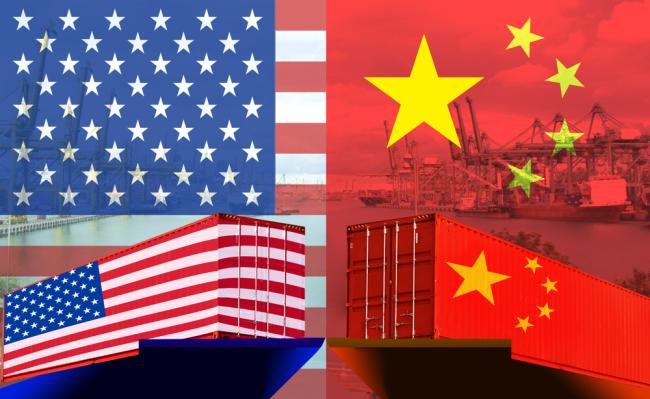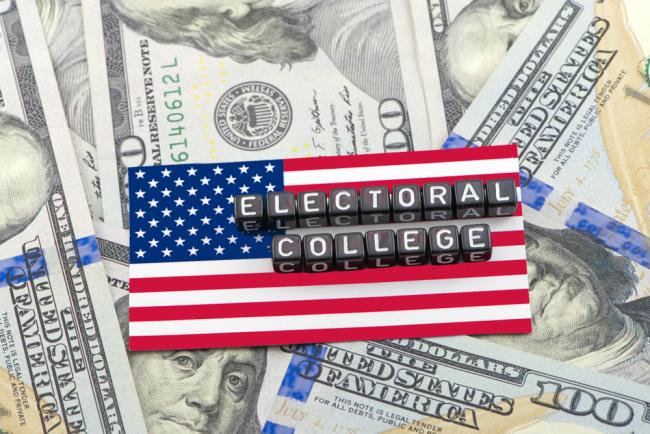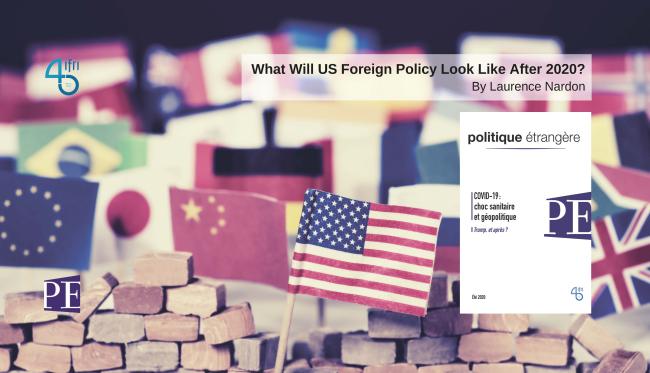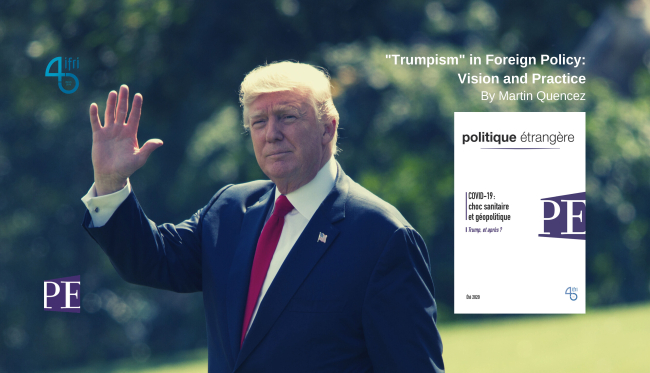United States of America
Despite polarized domestic politics and social tensions, the United States remains a major player in international relations, on the economic, military and diplomatic levels.
Related Subjects

Trump II: The Clash of Ideologies
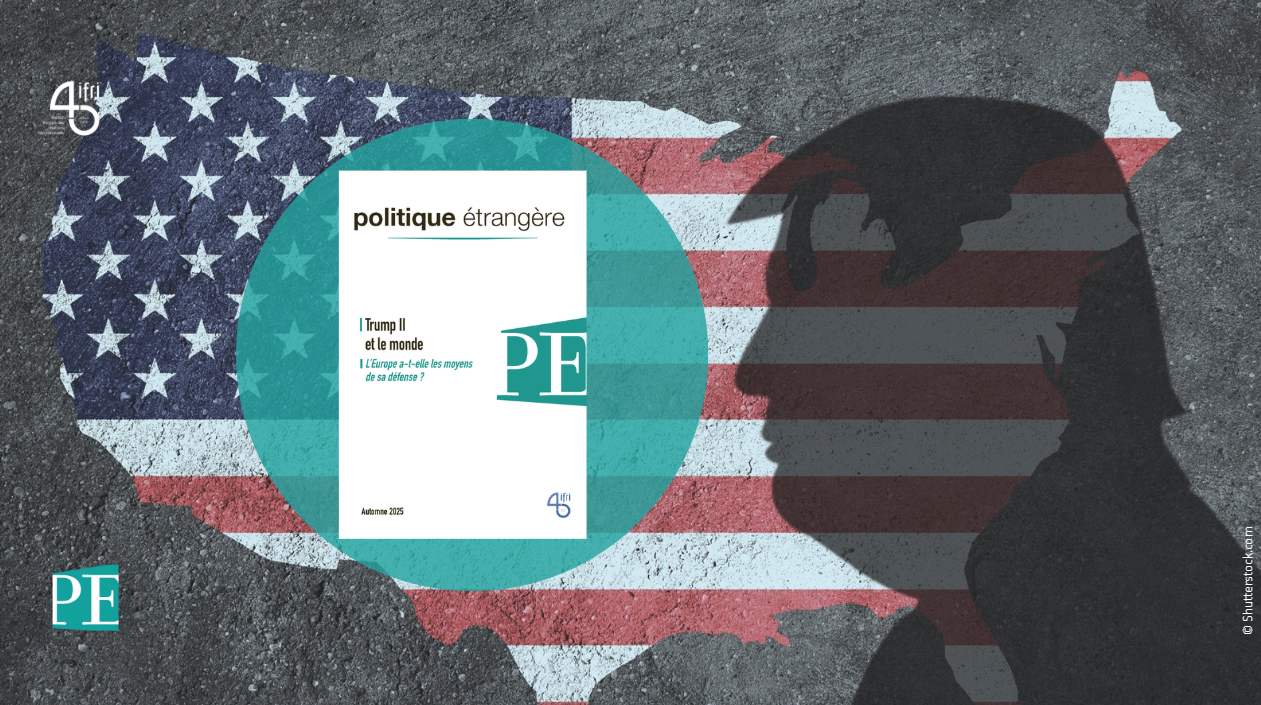
The second Trump administration brings together a number of very different, even opposing, ideologies: far-right populism, the reactionary Christian right, paleolibertarianism, and technolibertarianism. The most visible measures taken since Donald Trump's return to the White House have been populist in nature, with the president's authority strengthened, checks and balances weakened, a form of identity politics embraced, and economic nationalism implemented.
Washington-Téhéran : l'élection de Joe Biden change-t-elle la donne ?
The recent assassination of Mohsen Fakhrizadeh, the father of Iran's nuclear program, echoes that of Qassem Soleimani in January 2020 and illustrates the policy of "maximum pressure" which has prevailed these past four years. In this context, Joe Biden's election gives rise to high expectations for the appeasement of U.S.-Iran relations.
The US-China Trade War: What Is the Outcome after the Trump Presidency?
One of Donald Trump’s campaign promises in 2016 was to end China’s “cheating” on trade and to reduce America's trade deficit by imposing significant tariffs on U.S. imports of Chinese products. This study draws up a first assessment of his policy - and of the "trade war" which stemmed from it.
The Biden-Harris Election: A Respite In View Of What?
I am writing this seventh letter on Sunday, November 8. Yesterday, the world press proclaimed the victory of Joe Biden and Kamala Harris. However, Donald Trump has filed lawsuits in several states, which few people believe have any chance of succeeding. At this point, then, the present occupant of the White House can be said to have joined the narrow circle of one-term presidents. Other immediate observations come to mind.
L’inégalité du Collège électoral aux États-Unis : comment réparer la démocratie américaine ?
Since the start of the 21st century, the flaws of the Electoral College, which completes the election process of the president of the United States by indirect universal suffrage, are the target of stronger than ever criticism.
Minnesota: understanding national issues through a territorial lens
Located in the heart of a mostly Republican Midwest, Minnesota stood out in the 2016 presidential election, with Democratic candidate Hillary Clinton winning 46.5 % of the vote, in keeping with the State’s Democratic tradition. In the 2020 presidential campaign Minnesota has been a battleground state, as President Trump and Joe Biden are both intent on winning its 10 votes in the Electoral College.

COVID-19: A Public Health and Geopolitical Shock
The COVID-19 crisis has hit the countries of the European Union (EU) hard.
What Will US Foreign Policy Look Like After 2020?
The results of the US presidential election in November 2020 are very uncertain.
“Trumpism” in Foreign Policy: Vision and Practice
In 2016, Donald Trump ran as the candidate for change, and, once elected, he set about deconstructing the legacy of his predecessors.
U.S. Immigration Policy: The Making of a Crisis
Donald Trump’s election to the White House appeared to be the beginning of a profound change in the United States’ immigration policy. He reneged on bipartisan consensus that recognized the “positive contribution” of immigration to the country. This resulted in an increase in policies that affected all aspects of immigration. However, it is the most symbolic of Donald Trump’s goals: building a wall between the United States and Mexico that caused the longest government shutdown in American history.
Does the conservative media unanimously support Trump's 2020 bid?
From the 1920s to the 1980s, the American press followed strict discursive practices based on objectivity and fairness. Starting in the 1930s, the country's political center of gravity was on the liberal side and there were few overtly conservative media.
The Washington Tea Party
The near meltdown of the United States government evoked worldwide dismay and confusion. Both reactions were especially acute among America’s well-wishers. For not only would they have suffered the consequences of a global economic crisis but they also feel dependent on the probity of American leadership. That dependence may stem in part from their own failures to assume their reasonable share of responsibility for sustaining an orderly international system - a state of affairs remarkably unaffected by the costly flaws in Washington’s custodianship over the past several years. It is nonetheless real.
The U.S. Oil and Gas Boom
A funny thing happened in the last few years when no one was paying attention. J.R. Ewing, the legendary Texas oilman, and his wife Sue Ellen sold Southfork, their ranch near Dallas, and moved to a new home in Pennsylvania (Northfork?). JR immediately began buying subsurface mineral rights for acres of land above the Marcellus and Utica shale formations in the Appalachian Basin. Cliff Barnes, J.R.'s nemesis, sold all his Texas properties and moved to North Dakota, where he started leasing mineral rights to acreage above the Bakken shale play.
Don't Bank on Change: Finance and Regulatory Reform in the U.S.
As a number of provisions of the Dodd-Frank Act are entering into force, five years after the beginnings of the financial crisis, Professor Herman Schwartz explains how the U.S. banking community will continue to hurt the interests of the American economy and political system.
Is Omar Sy an Uncle Tom? Race relations in America and France as seen through "Les Intouchables"
The Intouchables tells the story of a young Senegalese immigrant named Driss, who has been hired to be the caretaker of Philippe, a rich tetraplegic. The feel-good comedy has been a smashing success in France and across the world, grossing over $350m worldwide. While reviews of the film both in France and abroad have been mostly positive, there is a contingent of American critics that thinks that The Intouchables highlights racial stereotypes.
The Democratic Party Under Obama and Beyond
The Democratic Party relies today on very different segments of the U.S. electorate, making it impossible for a Democratic President to sustain long-term public support. In the context of the current campaign, Prof. Nicol Rae provides an analysis of the Party's electoral strategy, since 2008 and beyond 2012.
U.S. Demographics: The Hispanic Boom
As confirmed by the 2010 Census, Hispanics have become the largest and most dynamic ethnic minority in the United States. While still facing many difficulties, this rather diverse group is undergoing important changes in terms of political representation, economic situation and cultural recognition. It should play a growing role on the national scene in coming years.
Strategic Stability in the Cold War: Lessons for Continuing Challenges
During the Cold War, the phrase “strategic stability” gained currency both as a foreign policy objective and as an apt way of describing the fact that the United States and the Soviet Union never actually went to war.
What Now for Obama ?
Larry J. Sabato, Professor of Politics at the University of Virginia, provides us with solid historical references and tools of analysis to understand midterms in general and those of 2010 in particular.
He points to the damaging effect of Tea Party candidacies on the Republican victory in the Senate, and on the impact of Republican gains on the 2011 redistricting process. But the bad economy seems to have been the key issue for 2010 voters - it may be key as well in the 2012 presidential election.
‘‘I'm Not a Feminist, But…'', a Comparative Analysis of the Women's Movement in the United States and France
The emergence of a feminist thought in the 18th century gave rise to steady and regular exchanges between French philosophers and American activists. They illustrate in a very particular sector the wealth of the relation between both countries. This dialogue continues on renewed bases today: both in universities (with the exploration of the concept of gender) and in the militant world (with the defense of precise and limited causes).
One Year Into the Obama Administration, What Has Really Changed?
Support independent French research
Ifri, a foundation recognized as being of public utility, relies largely on private donors – companies and individuals – to guarantee its sustainability and intellectual independence. Through their funding, donors help maintain the Institute's position among the world's leading think tanks. By benefiting from an internationally recognized network and expertise, donors refine their understanding of geopolitical risk and its consequences on global politics and the economy. In 2025, Ifri supports more than 80 French and foreign companies and organizations.







